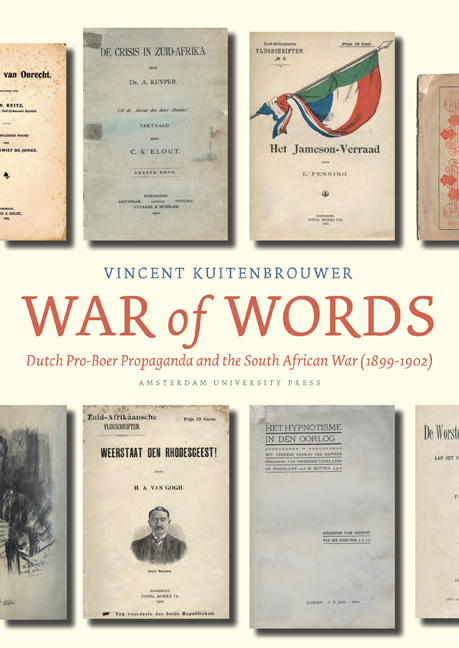Chapter 3 - A ‘Factory of Lies’? The Lines of Communication of the Boers and Their Supporters
Published online by Cambridge University Press: 15 January 2021
Summary
In the early evening of 4 April 1900, a train carrying the Prince of Wales arrived in Brussels. At the station, a young man jumped on the footboard of the prince's car and using a revolver fired two shots into it before he was arrested. Nobody was hurt. The next day, The Times reported that the assailant had declared that ‘he wanted to kill the Prince of Wales because his Royal Highness had caused thousands of men to be slaughtered in South Africa’. The editors therefore argued that the attack was incited by the pro-Boer propaganda campaign on the continent, which was at its height at the time. Other opinion makers too pointed out that the office of the minister plenipotentiary of Transvaal, Willem Leyds, was located in Brussels and suggested that he was directly involved in the assassination attempt. One of the most outspoken accusations came from the Secretary for India, Lord George Hamilton, who addressed his constituents in Acton when the news became known. He said that ‘if they had to seek for a reason for that foul attempt on the life of the heir-apparent they would recollect that Brussels had been the headquarters of that factory of lies of which Dr Leyds was the manager’.
Historians today assert that propaganda was an important aspect of the South African War, which was undoubtedly a ‘media war’. Significantly, contemporaries were well aware of this, as is shown by the reactions to the incident cited above. Sympathisers of both sides continuously accused each other of manipulations that gave a distorted view of the events taking place in South Africa in order to corrupt public opinion. In this respect, supporters of the Boers were no less outspoken than Lord Hamilton. In a reaction to his accusations, Leyds sent a telegram in which he described this speech as ‘new proof that during the present war people in England do not shrink from any means, not even the most perfidious slander, nor the most flagrant lie’. On another occasion, the Dutch journalist Charles Boissevain took offence when the Duke of Devonshire stated that Leyds had bribed the European press.
- Type
- Chapter
- Information
- War of WordsDutch Pro-Boer Propaganda and the South African War (1899–1902), pp. 105 - 142Publisher: Amsterdam University PressPrint publication year: 2012



